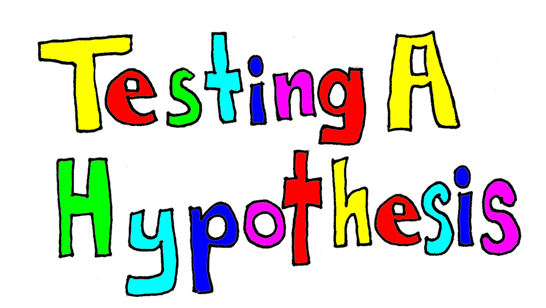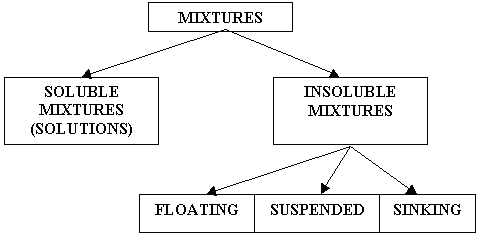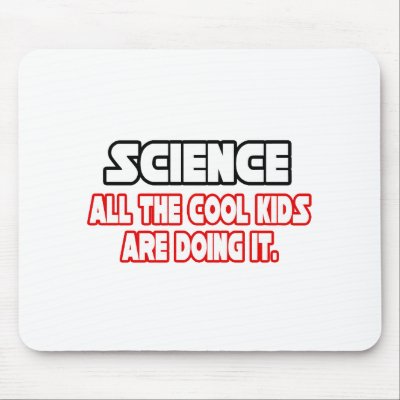 Well, this adventure in third grade science is over and a lifetime of teaching awaits! We wrapped up our unit with a very exciting jeopardy game. We split the class into two teams and they competed against each other for science pride. We had categories like science process skills, science tools, science vocabulary, and science experiments. The students did and amazing job and it was evident that they learned a lot in this unit. They were able to answer all but one of the jeopardy questions. The game cam down to the big double jeopardy questions at the end to determine the winner. The students loved this game and it was a great way to assess their learning for us!
Well, this adventure in third grade science is over and a lifetime of teaching awaits! We wrapped up our unit with a very exciting jeopardy game. We split the class into two teams and they competed against each other for science pride. We had categories like science process skills, science tools, science vocabulary, and science experiments. The students did and amazing job and it was evident that they learned a lot in this unit. They were able to answer all but one of the jeopardy questions. The game cam down to the big double jeopardy questions at the end to determine the winner. The students loved this game and it was a great way to assess their learning for us! This experience teaching our changes unit in the third grade has been invaluable. It was a pleasure getting to know the students and help spark their curiosity of science and build their foundation of science concepts. I feel like I learned so much from the teacher, the students, as well as my teaching partner Debi about teaching science. I have learned and grown so much and my confidence in teaching has grown by leaps and bounds. I feel like have been given the knowledge and the tools necessary to take on any classroom and have success. After this experience I feel as though I am way more confident and prepared to have my own classroom. I am now aware of how important planning and preparation are to successful lessons. I am also more aware of how important good classroom management techniques are to a successful learning environment. Most importantly I learned that for students to retain and learn from they need to be motivated and excited. It is our job as teachers to not only provide the concepts and the tools for our students, but to excite them and motivate them to succeed. The more memorable you can make each day the more likely they will learn what you are trying to teach.
 I am very thankful to my teaching partner Debi for working so hard with me to teach our changes unit to our students. We were a great team and because of this teamwork we had a very successful semester. We put in a tremendous amount of work each week and it all paid off in our final lesson when we played solids, liquids and gases jeopardy with our students and they shocked us with how much they learned throughout the unit and how excited they were about their new knowledge. I am also very grateful for the feedback from our supervisors during this experience. Each week I felt like I grew more confident and became a better teacher with the constructive criticism that I received from our observers. This feedback helped me see myself from an outside looking in perspective and recognize areas that I need to focus on in future lessons. Furthermore, the teacher we worked with was very helpful and supportive during this whole unit. She helped us with classroom management and useful ways to get the kids to quite down and focus on the task at hand. We found the "thumbs up" method especially helpful to keep the students attention on the task at hand and to move the lesson along at an appropriate pace. She was also very helpful in showing us just how motivating and fun hands on learning can be, especially in science.
I am very thankful to my teaching partner Debi for working so hard with me to teach our changes unit to our students. We were a great team and because of this teamwork we had a very successful semester. We put in a tremendous amount of work each week and it all paid off in our final lesson when we played solids, liquids and gases jeopardy with our students and they shocked us with how much they learned throughout the unit and how excited they were about their new knowledge. I am also very grateful for the feedback from our supervisors during this experience. Each week I felt like I grew more confident and became a better teacher with the constructive criticism that I received from our observers. This feedback helped me see myself from an outside looking in perspective and recognize areas that I need to focus on in future lessons. Furthermore, the teacher we worked with was very helpful and supportive during this whole unit. She helped us with classroom management and useful ways to get the kids to quite down and focus on the task at hand. We found the "thumbs up" method especially helpful to keep the students attention on the task at hand and to move the lesson along at an appropriate pace. She was also very helpful in showing us just how motivating and fun hands on learning can be, especially in science.I am also a lot more confident in solids, liquids and gases than I was before this experiment. I would be very confident in moving forward and teaching this lesson again. I often times had to go home and research more about this content area because the students came up with so many great questions and I wanted to be an expert. This also taught me to be on your toes as a teacher and that content knowledge is very important. The students will come up with a question that will leave you feeling stumped. 

I have also learned that teaching science cannot be successful without teaching process skills. The students needs to know that science is all about asking questions and then searching for answers. In this search they will use a wealth of process skills from observation to classification. Our students used many different process skills each week and I was pleasantly surprised at the end of the unit that they understood and new how we used all of their process skills! Yay Success!! The only thing I can say about doing this again is maybe setting up a time when the teacher has some free time to talk with us before we begin the unit. We had only a few short minutes to talk with the classroom teacher upon our first visit and she was very busy. It would be helpful to have a little more time to touch base with her and discuss the classroom dynamic, get to know some kids names, and learn the teachers expectations for the lessons. Other than that this experience was awesome! It taught me more than sitting in a classroom at the university could ever teach.
 Overall I have learned from this experience that teaching science is challenging and very fun. It brings with it inquiry and excitement. If you share this excitement with your students you will be successful. The more they are curious and excited the harder they work and the more value the lesson will have in their lives. It was very sad to say goodbye to the students. As they handed us cards and gave us hugs i just wanted to stay with them forever. What will stay with me forever is that I made a difference in their educational lives. They learned a lot from me and I learned a lot for them.
Overall I have learned from this experience that teaching science is challenging and very fun. It brings with it inquiry and excitement. If you share this excitement with your students you will be successful. The more they are curious and excited the harder they work and the more value the lesson will have in their lives. It was very sad to say goodbye to the students. As they handed us cards and gave us hugs i just wanted to stay with them forever. What will stay with me forever is that I made a difference in their educational lives. They learned a lot from me and I learned a lot for them. I really enjoyed writing this blog for our science teaching. I have always enjoyed keeping journals of my life experience and blogging is a great way to share experiences with others. I feel like this blog was a great way to help me reflect on my teaching and how to improve future lessons. I also enjoyed reading the blogs of my fellow classmates. I felt like it gave me a connection to my classmates and helped me learn from their techniques and experiences. Blogging was a great way to share with each other and created a network of support

THANKS FOR A GREAT SEMESTER EVERYONE!!



 I feel so proud of our third grade science students! They are working so hard and learning so much about solids, liquids and gases. I think they are really enjoying this changes unit. This week we were challenged to incorporate writing and technology into our lessons for the week. We began our class period with a writing prompt for all our students that they worked on in their science journals. We asked them to talk about their favorite science activity we have done so far. While they worked on their writing assignment Debi and I prepared our materials for the class. My partner Debi did a tremendous job this week organizing all the materials for this lesson and all we had to do was lay them out for the students. This preparation has proven to be a blessing! There is a lot less stress and the lessons run much more smooth with good preparation. This is a lesson I will carry with me in the future for sure. We began our lesson reexamining predictions the students made at the end of last weeks lesson. They predicted that the gravel and salt mixture would be the easiest to separate and that the salt and water would be the hardest to separate. These predictions helped us explain how important predictions are as a science process skill. After discussing our predictions and reviewing our lesson from last week we were ready to embark on our separating solids and liquids experiment. The students were using their mixtures from last week to separate back into the original solids and liquids. The students worked with their materials very well and did a great using a funnel to filter their mixtures. They separated each mixture and recorded their observations on a record sheet.
I feel so proud of our third grade science students! They are working so hard and learning so much about solids, liquids and gases. I think they are really enjoying this changes unit. This week we were challenged to incorporate writing and technology into our lessons for the week. We began our class period with a writing prompt for all our students that they worked on in their science journals. We asked them to talk about their favorite science activity we have done so far. While they worked on their writing assignment Debi and I prepared our materials for the class. My partner Debi did a tremendous job this week organizing all the materials for this lesson and all we had to do was lay them out for the students. This preparation has proven to be a blessing! There is a lot less stress and the lessons run much more smooth with good preparation. This is a lesson I will carry with me in the future for sure. We began our lesson reexamining predictions the students made at the end of last weeks lesson. They predicted that the gravel and salt mixture would be the easiest to separate and that the salt and water would be the hardest to separate. These predictions helped us explain how important predictions are as a science process skill. After discussing our predictions and reviewing our lesson from last week we were ready to embark on our separating solids and liquids experiment. The students were using their mixtures from last week to separate back into the original solids and liquids. The students worked with their materials very well and did a great using a funnel to filter their mixtures. They separated each mixture and recorded their observations on a record sheet. 


 Wow this semester is flying by and I cannot believe
Wow this semester is flying by and I cannot believe





 I was very impressed with the students efforts and varied methods in melting their ice cube. I saw the students trying many different ways to melt their ice. They were holding tight to the bag, sitting on the bag, wrapping the bag in their sweatshirts and even crushing their ice cubes. The students understood very quickly that adding heat to the ice cube would turn it back into a liquid. They got more and more excited the closer their ice was to completely melted. This lesson was a bit challenging because some of the students had a hard time making sure their bags didn't break and were not showing as much care as was asked of them at the beginning of our lesson. Some bags ripped open and a few spills happened throughout the lesson. I think in future lessons we need to be more proactive in stopping the students when their experiments are getting off track or they are not listening to the rules of the experiment. Overall however, the students were able to melt their ice and had fun in the process. This experiment was in line with the state frameworks for the third grade which asks students to describe how water can be changed from one state to another by adding or taking away heat.
I was very impressed with the students efforts and varied methods in melting their ice cube. I saw the students trying many different ways to melt their ice. They were holding tight to the bag, sitting on the bag, wrapping the bag in their sweatshirts and even crushing their ice cubes. The students understood very quickly that adding heat to the ice cube would turn it back into a liquid. They got more and more excited the closer their ice was to completely melted. This lesson was a bit challenging because some of the students had a hard time making sure their bags didn't break and were not showing as much care as was asked of them at the beginning of our lesson. Some bags ripped open and a few spills happened throughout the lesson. I think in future lessons we need to be more proactive in stopping the students when their experiments are getting off track or they are not listening to the rules of the experiment. Overall however, the students were able to melt their ice and had fun in the process. This experiment was in line with the state frameworks for the third grade which asks students to describe how water can be changed from one state to another by adding or taking away heat. 

